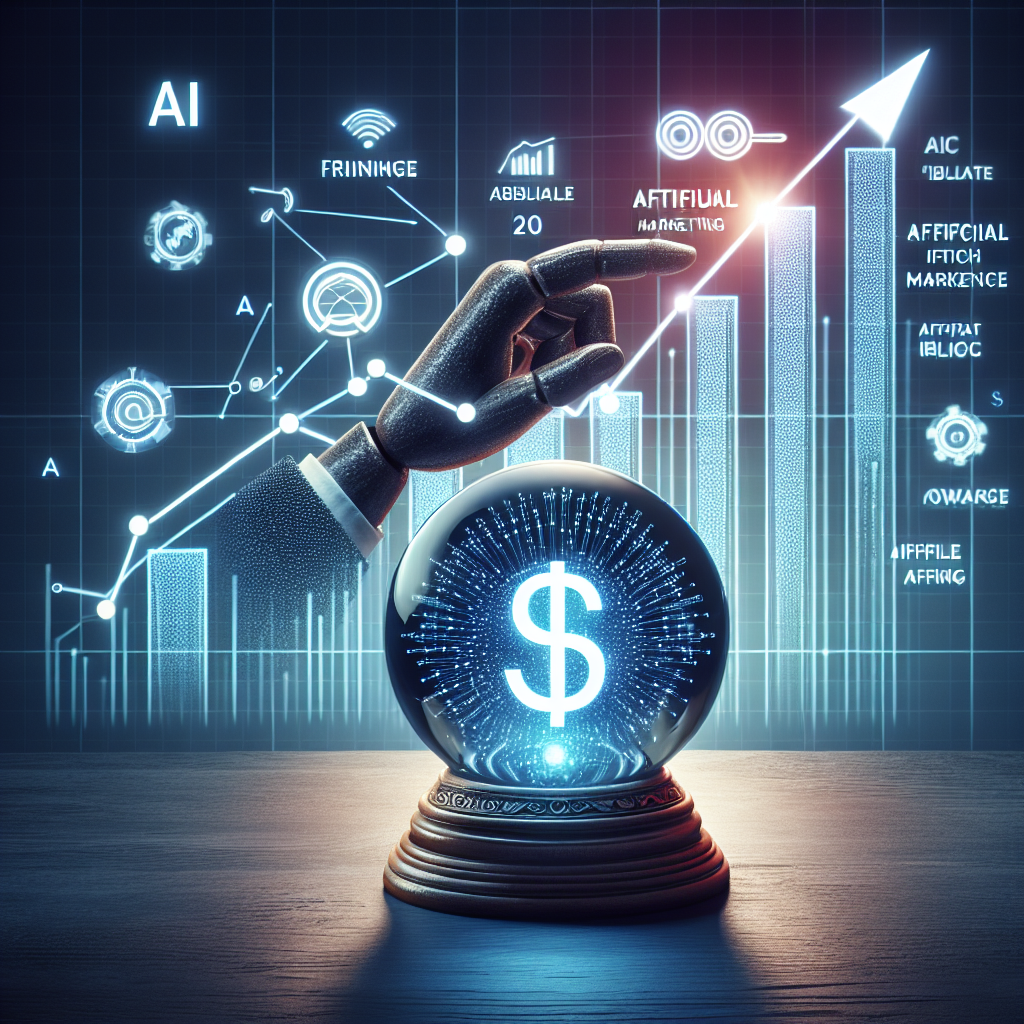In the rapidly evolving world of affiliate marketing, staying ahead of the game is crucial. With the advent of artificial intelligence (AI), marketers are exploring innovative ways to boost their profits and efficiency. By 2025, AI strategies will significantly change the affiliate marketing landscape. Let’s dig into these strategies and uncover how they can skyrocket your affiliate marketing profits.
Introduction to AI in Affiliate Marketing
The integration of AI in affiliate marketing is not just a buzzword—it’s a game-changer. AI can automate complex tasks, analyze vast amounts of data, and provide personalized experiences to customers. Here’s how AI is shaping the future of affiliate marketing.
Automation and Efficiency
AI can take over mundane tasks, freeing up marketers to focus on strategy and creative work. For example, AI tools can handle tasks like email marketing, customer segmentation, and even content creation. This not only saves time but also increases efficiency and productivity.
Improved Personalization
AI algorithms can analyze user behavior and preferences to provide highly personalized experiences. Whether it’s product recommendations, targeted emails, or personalized content, AI can help you deliver what your audience truly wants.
Advanced Analytics
AI can process and analyze vast amounts of data far beyond human capabilities. With AI, you can gain deeper insights into customer behavior, market trends, and campaign performance, enabling you to make data-driven decisions for your affiliate marketing strategies.
2025’s Top AI Strategies for Affiliate Marketing
As we look to the future, here are the top AI strategies poised to revolutionize the affiliate marketing landscape by 2025.
1. Predictive Analytics for Precise Targeting
Predictive analytics involve using AI to predict future trends based on historical data. This can help you identify potential customers, understand their needs, and tailor your marketing strategies accordingly. For instance, if AI identifies a trend where customers are more likely to make a purchase on weekends, you can schedule your promotional emails accordingly.
2. AI-Driven Content Creation
AI tools can generate content that aligns with your audience’s interests and preferences, increasing engagement and conversion rates. For example, AI can create personalized blog posts, social media updates, or product descriptions based on user data.
3. Chatbots for Enhanced Customer Experience
Chatbots, powered by AI, can provide instant, personalized responses to customer queries, enhancing customer experience and satisfaction. They can also recommend products, provide information, and even assist in making purchases, increasing your conversion rates.
4. AI-Powered Affiliate Program Management
AI can help streamline your affiliate program management. From tracking affiliate performance to identifying fraudulent activities, AI can automate and enhance various aspects of affiliate program management.
5. Advanced Image and Voice Recognition
With advances in image and voice recognition technologies, AI can analyze visual and audio data to gain deeper insights into consumer behavior. For instance, AI can identify products or brands in images or voice recordings, helping you understand your market better.
Pros and Cons of Using AI in Affiliate Marketing
Like any technology, AI in affiliate marketing comes with its own set of advantages and challenges. Here’s a look at the pros and cons.
Pros:
- Improved Efficiency: AI can automate tasks, saving time and increasing productivity.
- Advanced Analytics: AI can analyze vast amounts of data, providing deep insights and helping you make data-driven decisions.
- Enhanced Personalization: AI can provide highly personalized experiences to customers, increasing engagement and conversion rates.
Cons:
- High Costs: Implementing AI technologies can be expensive, especially for small businesses.
- Technical Expertise: To leverage AI effectively, you need a certain level of technical knowledge and expertise.
- Data Privacy Concerns: Handling large amounts of customer data raises concerns about data privacy and security.
Conclusion
As we move towards 2025, AI is set to transform the affiliate marketing landscape. By leveraging AI strategies, marketers can enhance their efficiency, gain deeper insights, and provide personalized experiences to their customers, all of which can significantly boost their affiliate marketing profits. Despite the challenges, the benefits of integrating AI in affiliate marketing far outweigh the drawbacks.
Frequently Asked Questions (FAQs)
1. How can AI improve affiliate marketing?
AI can automate tasks, analyze data, and provide personalized experiences, enhancing efficiency, gaining deeper insights, and increasing engagement and conversion rates in affiliate marketing.
2. What are some examples of AI in affiliate marketing?
Examples of AI in affiliate marketing include predictive analytics, AI-driven content creation, chatbots, AI-powered affiliate program management, and advanced image and voice recognition.
3. What are the challenges of integrating AI in affiliate marketing?
Challenges include high implementation costs, the need for technical expertise, and concerns about data privacy and security.
4. How is AI expected to change affiliate marketing by 2025?
By 2025, AI is expected to revolutionize affiliate marketing with advanced strategies like predictive analytics, AI-driven content creation, chatbots, AI-powered affiliate program management, and advanced image and voice recognition.
